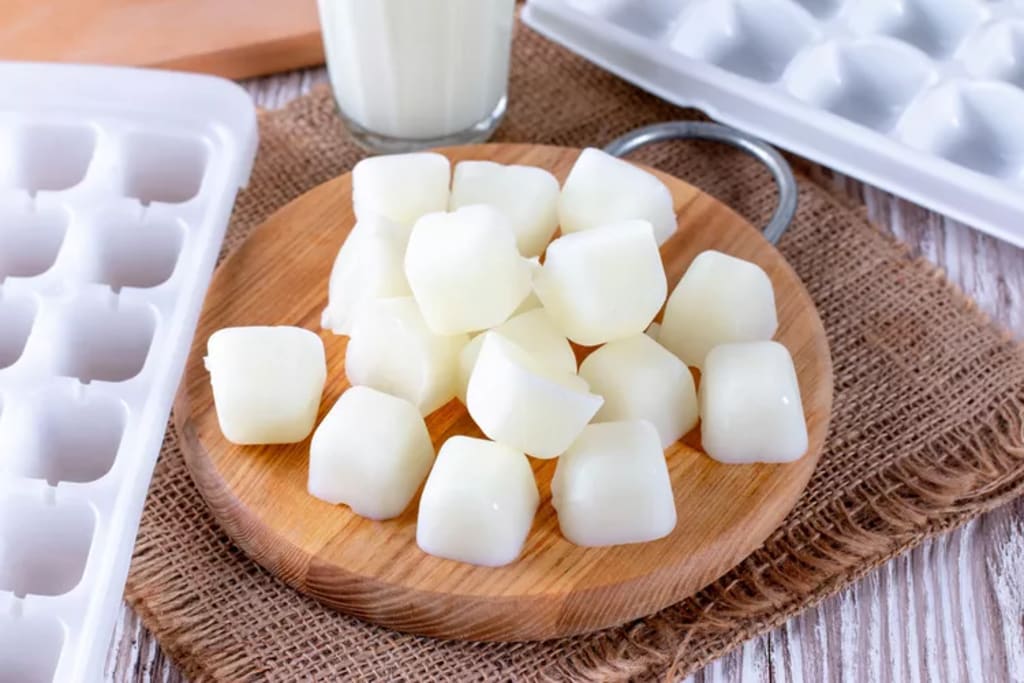Can You Freeze Milk—and Should You?
Find out whether your favorite creamy beverage—whether it's dairy, oat, almond, or coconut—can handle a deep freeze.

There are many ways to deal with the (occasionally) unbearable heat that comes with the summer season, including taking a dip in your local pool, making meals and snacks that don’t require you to turn on the stove or oven, and cranking up your fan or air conditioner. Another thing you can do to beat the heat is sip on any number of refreshing summer drinks.
There’s always water, iced tea, and lemonade, of course, but if you’re looking for something a little more interesting, we’ve compiled a list of cocktails that will keep you cool (and a little buzzed) during those summer scorchers. You’ll find classic drinks like a margarita and a Tom Collins, as well as more creative options such as a green tea Pimm’s and an elderflower spritz. Whatever you’re craving, there’s a drink for you! And, if you’d rather skip the booze altogether, know that many of these recipes still taste great if you simply omit the alcohol or use your go-to non-alcoholic alternative instead.
If you tend to have leftover milk that goes bad before you finish it, there's no need to let it go to waste. It turns out, you can freeze milk and preserve it for months so you have it ready for your next baking project or smoothie fest.
And it doesn't matter if it's dairy milk or plant-based milk—the storage strategies and thawing methods are similar. Here's everything you need to know about how to freeze milk.
6 Foods You Should Never Freeze, Surprisingly
Tips for Freezing Milk
If you need to freeze milk, it's a relatively simple process—but there are some tips and tricks that can help you make the most of every drop.
Leave room for the milk to expand
The biggest mistake you can make when you're freezing milk is to fill it to the brim of the bag or container you're using. Liquids expand when they're frozen, and that could lead to a broken container and a big mess in your freezer. Use a freezer-safe container or bag, and leave at least two inches of room for expansion as it freezes.
Understand how freezing may impact milk texture
There's one minor issue with freezing milk, whether it's dairy milk or plant milk: Freezing and thawing can impact the texture. The milk generally becomes thinner and a bit less creamy. And in some instances, you may end up with some separation, where the thicker solids separate from the liquid parts of the milk.
It shouldn't be a deal breaker, though. Simply shake or blend the milk after it thaws to help its texture.
Consider portioning the milk out
Think about how you'll plan to use the milk after you thaw it, and package it up in portions that make sense. For instance, if you plan to use smaller amounts, freeze the milk in an ice cube tray (each standard cube is about one ounce of milk), then put the ice cubes into a freezer-safe bag to stash them.
This can be especially helpful for buttermilk and other milk products you may want to use a small amount of.
Freeze your milk sooner, rather than later
Dairy products in particular tend to lose quality pretty quickly—so if possible, don't wait until the sell by date to make the move to the freezer. That'll help ensure that your milk is as fresh as possible when you defrost it to use.
Use frozen milk for cooking, baking, and blending
Because freezing and thawing can impact the texture of the milk, it might be a little less than ideal for drinking straight up. But in applications where it's being blended in with other ingredients, whether it's a coffee drink, cake, or smoothie, you won't notice the change in texture.
18 Fruit Smoothie Recipes You Can Make in Minutes
Try to use frozen milk within a few months
Frozen milk isn't going to go "bad," but it will decline in quality gradually. You should plan to use most milk within a few months of freezing it.
Freezing Cow's Milk
Since there is such a thing as ice cream, you're probably aware that milk can be easily frozen. But depending on what kind of dairy product you're freezing, your results may vary.
How to freeze milk or cream
You can freeze milk or cream in a freezer-safe container, ice cube trays, or in the original container (as long as you leave room for expansion!).
How to freeze evaporated milk or sweetened condensed milk
Obviously, since these are usually packaged in cans, evaporated milk and sweetened condensed milk can last for a long time on your pantry shelves. But if your recipe calls for only a portion of a can and you won't be using it soon for something else, you can freeze your leftovers as you would regular milk.






Comments
There are no comments for this story
Be the first to respond and start the conversation.